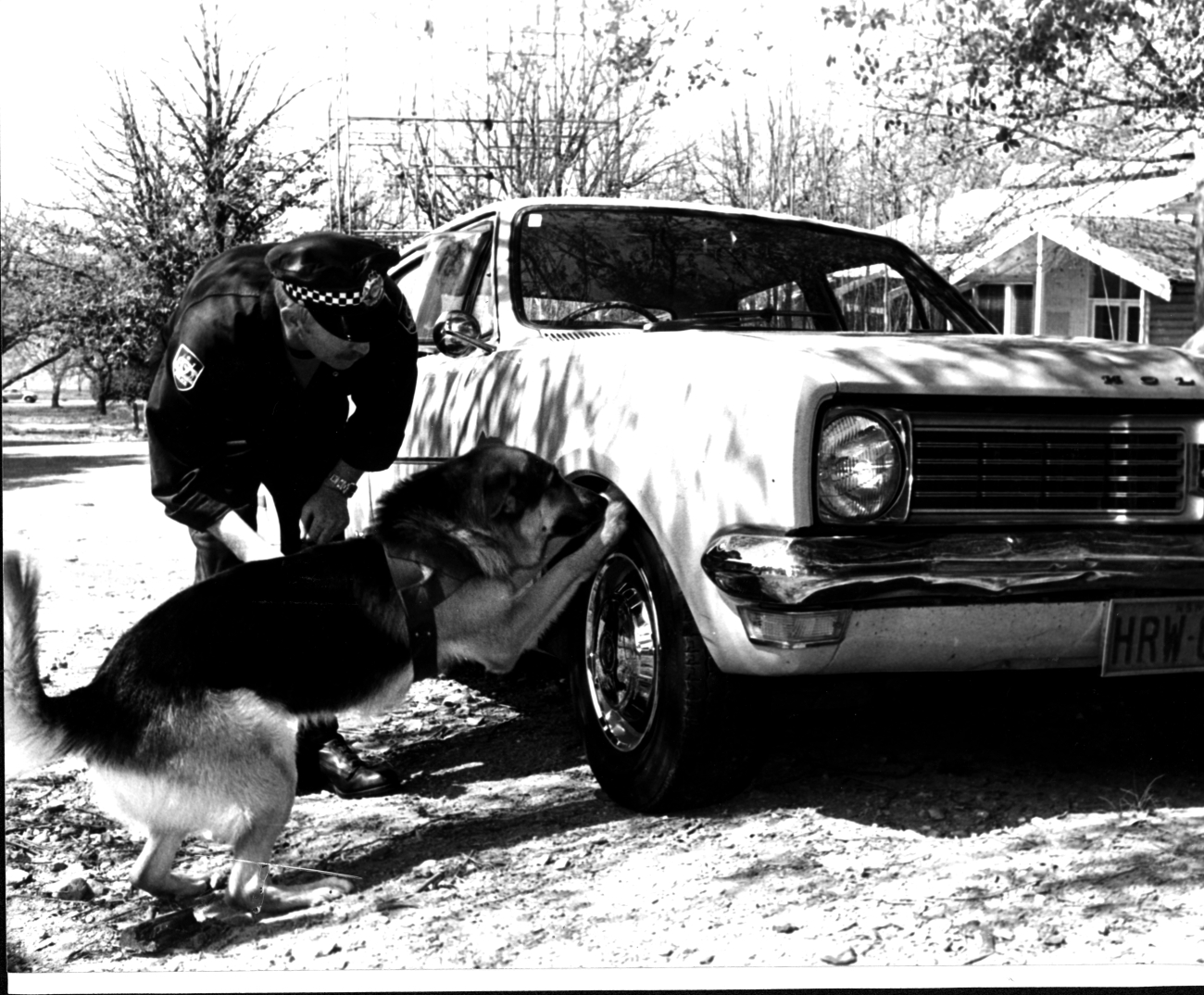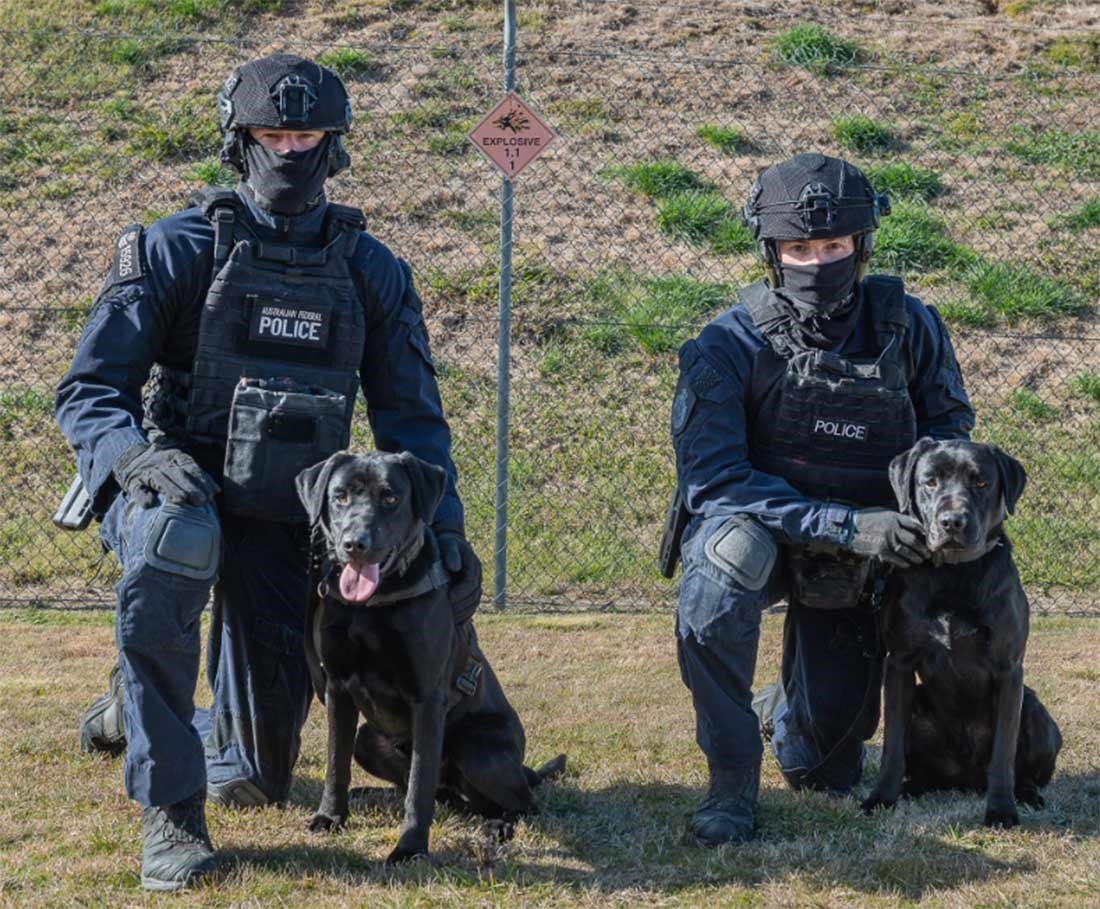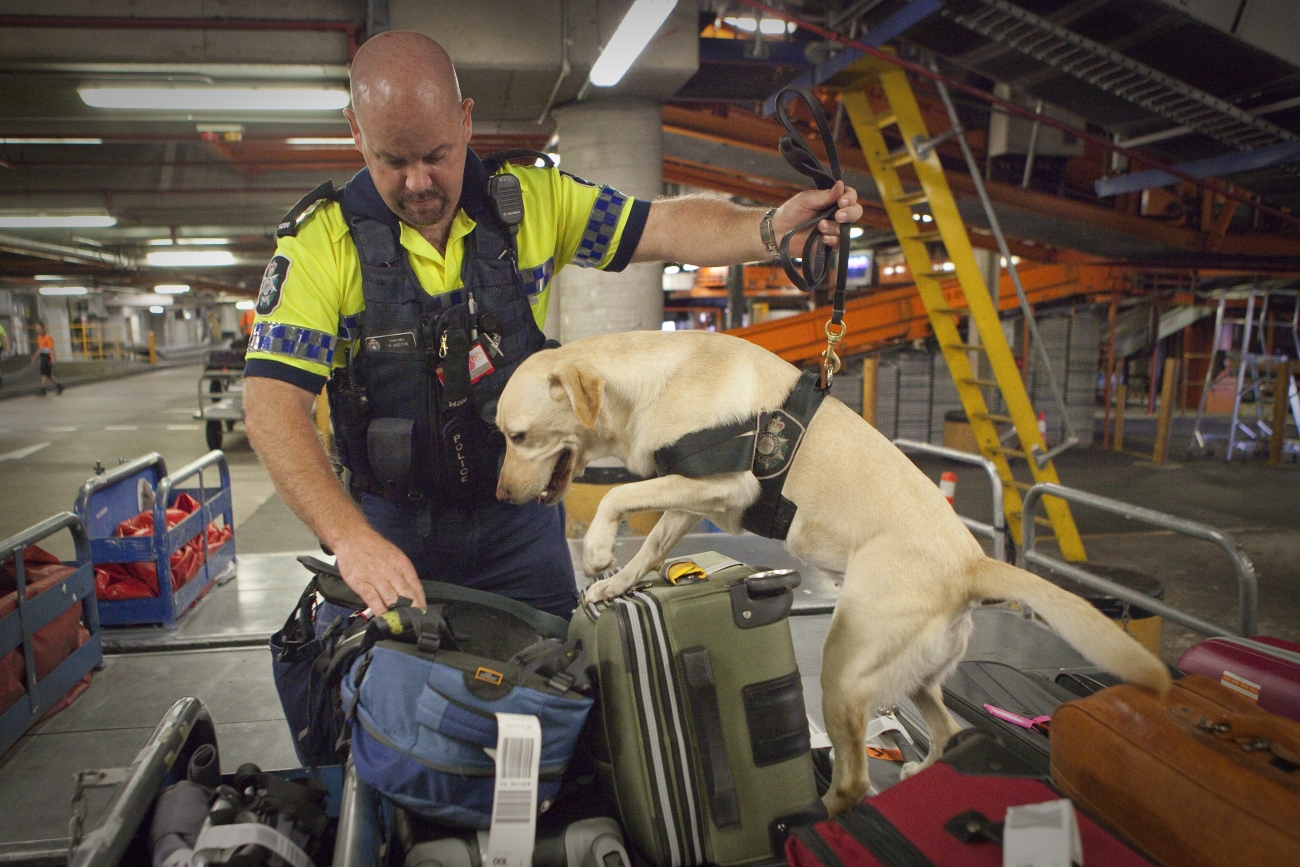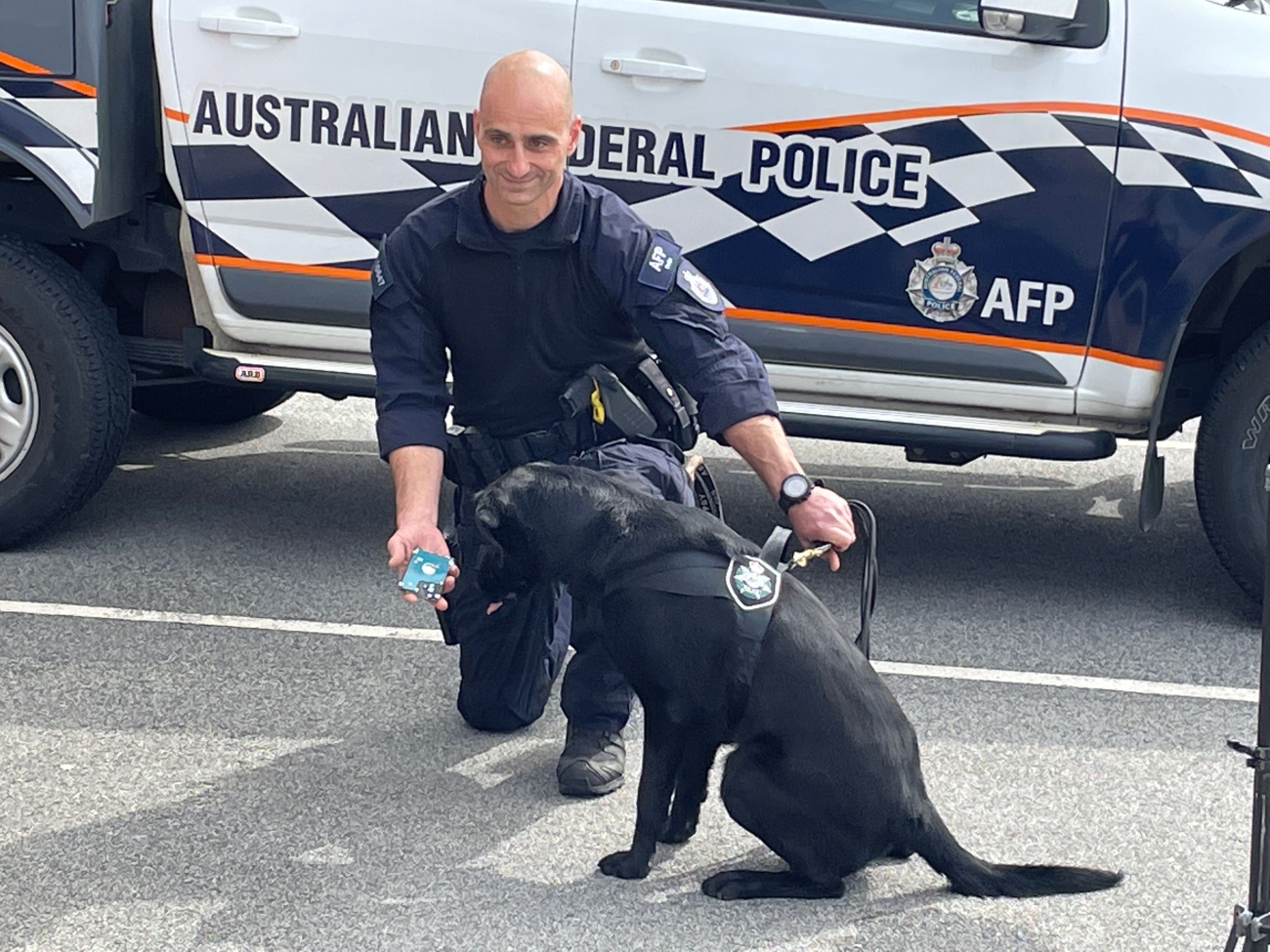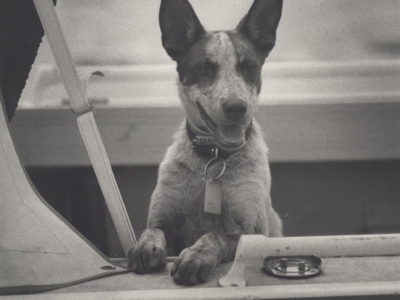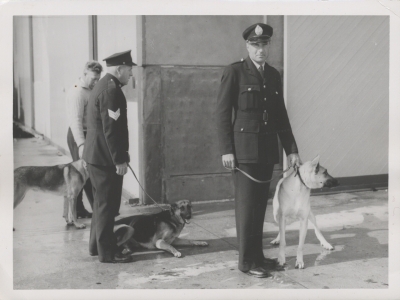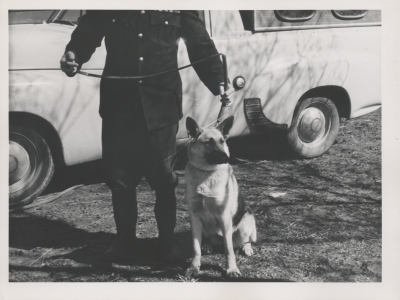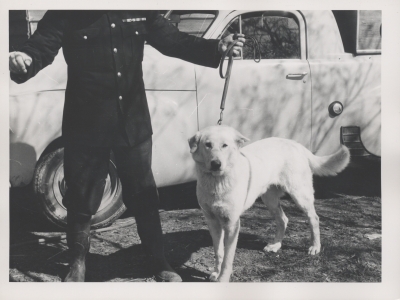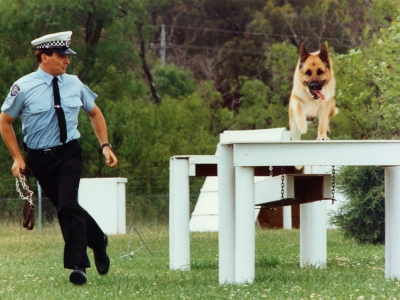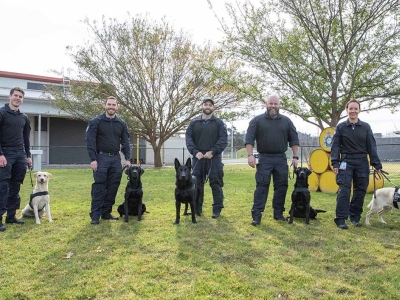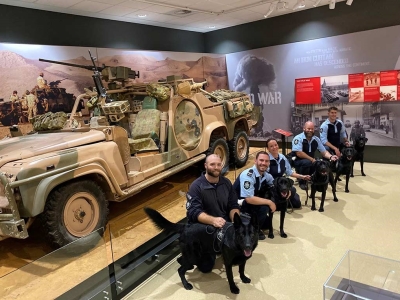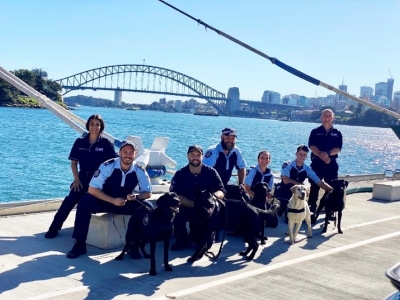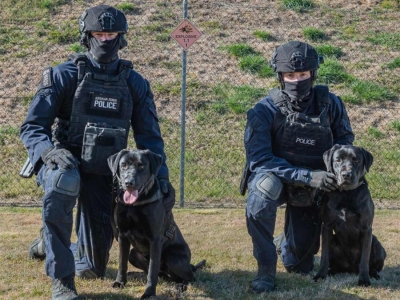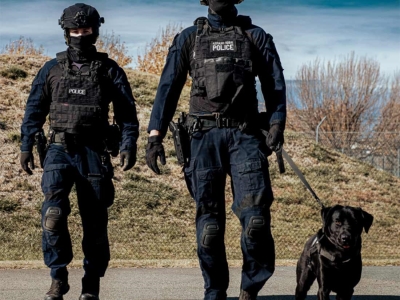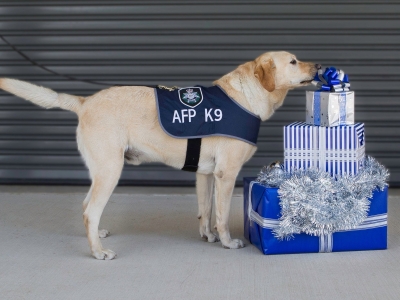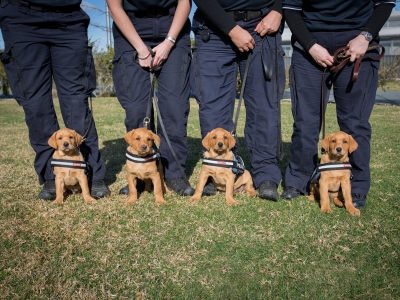We have abut 100 canines in service throughout Australia, a long way from our single detection dog, Kaiser, in 1983.
Now, specially-bred puppies are selected to train under our National Canine Operations Program. Some as firearms and explosives detection dogs, and others to work in currency and drug, tactical, or technology detection roles.
Since 1993, an Australian Border Force labrador breeding and training facility outside Melbourne has supplied us with just one of the canine breeds used in our police work. Its facilities can house 200 dogs, multiple litters of puppies, and are used to train new and existing handlers.
Our commitment to sourcing and training canines plays a major role in keeping Australia safe. The bond of handler and dog is critical – there is complete trust and there is complete respect.
AFP National Canine Operations
Our National Canine Operations Program consists of the National Canine Operations Centre (NCOC), Australian Capital Territory (ACT) Canine Team and Regional Canine Units. It coordinates AFP National Canine capability, training, standards, and new canine selection.
Our canine teams operate out of Canberra, Sydney, Melbourne, Adelaide, Perth, Darwin, Cairns, Brisbane, and the Gold Coast and support internal and external AFP operations.
Highly-trained detection dogs and their handlers support the AFP’s role in ensuring Australia’s security. Capabilities are regularly weighed up against new operational demands, with decisions made to change, remove or introduce new disciplines as needed.
New dogs in the program are evaluated during 6-week, pre-course training. From here, our 13-week, handler evaluation program identifies the best dogs to undertake further specialised training as tactical and general purpose canines. Those with other unique skills train as currency and drug, explosives, and technology detection canines.
Canines can be used during search warrants of suspected illicit drug and weapon traffickers, child sex offenders, and terrorists. The key evidence they find is often hidden and could otherwise be missed. Using dogs and their keen sense of smell supports the full range of our investigations and allows us to save valuable time and get better results.
The AFP National Canine Program trains, develops and maintains dogs in disciplines including:
Firearms and explosive detection dogs
The AFP maintains a firearms and explosive detection capability for criminal investigations, and at major airports to enhance existing screening. Canines can detect a range of military and commercial grade explosives and firearms.
Currency and drug detection dogs
These canines detect the illegal movement and concealment of Australian and international currency to support AFP national and aviation operations. They help to find cash from the proceeds of crime and identify money launderers, who try to bring large amounts of cash into or out of the country. They also detect illegal drugs, supporting operations to detect, disrupt and dismantle ad-hoc and organised illegal importation.
General purpose dogs
These canines support AFP operations in the ACT, nationally and internationally, assisting with searching:
- Open and rural areas for offenders and missing persons
- Buildings or enclosed areas for physical evidence.
They also assist with public order management and apprehending violent or fleeing offenders.
Tactical dogs
These specialty canines support operations in the ACT, nationally and internationally, including on high risk:
- warrants to deter and detain fleeing offenders
- vehicle stops
- tactical urban and rural tracking team operations
- incident responses.
Technology detection dogs
As crime becomes more cyber-enabled, the AFP is using canines to detect mobile phones, and easily concealed SIM cards, USB drives and memory cards, which can hold evidence. They have a nose for sniffing out devices hidden in shoes or buried in eskies full of food.
Following a major Federal Government funding boost for the Technology Detection Dogs Program in 2021, technology detection are deployed around the country.
Which canine breeds make it through?
Labradors are the most common breed in our canine program. Their hunting skills and availability through the Australian Border Force canine breeding program make them ideal.
The drive and focus of german shepherds, malanois and belgium shepherds sees them used in the AFP Community Policing Canine team and other areas. Not all of the canines chosen to train with us make the cut. Many of our canine handlers have between 10-18 years’ experience, and will work with a number of dogs before being partnered with their own.


